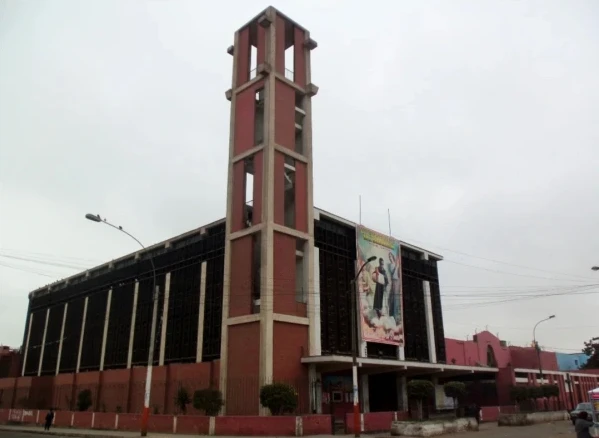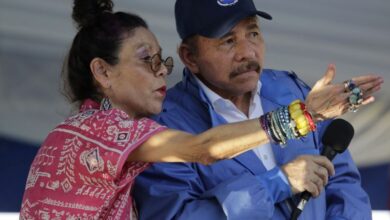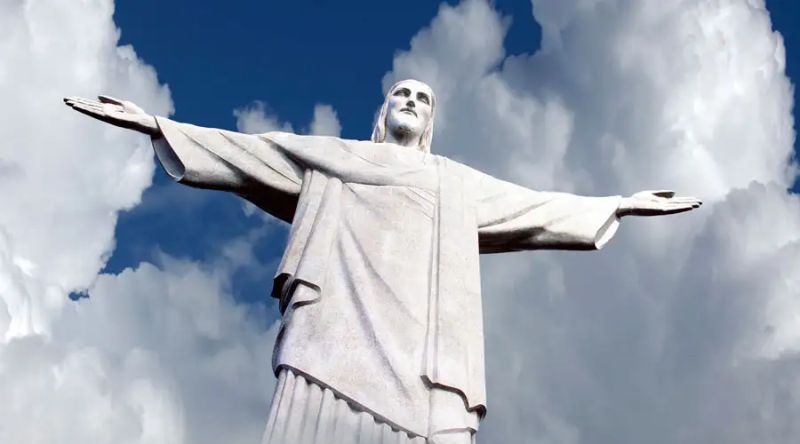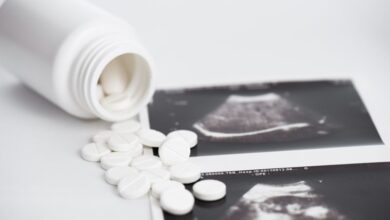From international pickpocket to redemption: Víctor Sono’s story

 Notorious former international pickpocket Víctor Sono Neira. / Credit: Diego López Marina/ACI Prensa
Notorious former international pickpocket Víctor Sono Neira. / Credit: Diego López Marina/ACI Prensa Lima Newsroom, Feb 16, 2025 / 11:00 am (CNA).
Víctor Sono Neira spent years trapped in addiction and crime as an international pickpocket. In a radical change of heart, he chose to live on the streets of Lima, Peru’s historic downtown in search of redemption. A devotee of the Lord of Miracles, he gave the broken pieces of his life to Jesus and today, at the age of 72, he is a living testimony to God’s mercy and forgiveness.
“How is it possible that a man as evil, old, and criminal as I am, who committed so many sins, even taking the lives of others, was so loved by him? Why me? Who am I?” Sono wondered aloud in a recent interview with ACI Prensa, CNA’s Spanish-language news partner.
“I have to accept God’s mercy, even if it’s hard for me to do. I’m stubborn, I fight with him like a son does with his father. But that is what pleases him: to see how, despite everything, I love him more every day. He is my life,” Víctor added.
Born on Oct. 5, 1952, at the Lima Maternity Hospital, Sono now lives in the Sembrando Esperanza (Sowing Hope) home for the elderly in the Villa María del Triunfo district of Lima, a place that provides comprehensive care to vulnerable people, most of whom are abandoned and have health problems.
When you visit him and talk to him to learn his story firsthand, you can see the scars on his skin: traces of the bullets that pierced him during bank robberies or police chases, and the marks of accidents and the knife wounds on his arms from past confrontations.

To know him is to feel the weight of a difficult past, a story that, although painful, is part of the experience that allowed him to reconnect with God in his darkest moment. Despite having had great wealth thanks to thievery, today he has no material goods and lives trusting in providence.
Sono is diabetic, hypertensive, and faces problems with depression. However, for several years he has continued attending Mass, receiving the sacraments, reading the Bible, receiving spiritual guidance, and seeking to heal his wounds, completely giving himself over to the will of God and serving his fellow residents and those who come to visit him to establish a sincere friendship.
“Jesus is here, at my side, sitting with me. He is my friend. God is present, conversing with us, speaking to me through the other residents. I remember the last time I went to go see the Lord of Miracles [a famous image of Christ crucified], and I heard him say that ‘Jesus has come to look for those who are lost, those who are sick in soul, mind, and heart.’ He has not come for those who are healthy, he has come for those who are sick inside, like me. Because the real illness is not outside, it is deep within me and he has come to heal me,” the former thief told ACI Prensa.
Sono’s youth, first robbery
Sono was left in the care of his grandmother after being abandoned by his mother, whom he never got to know. This represents a void that continues to pain him in the depths of his soul.
He grew up in a small and very poor house in the Rímac district of Lima, where he lived along with some uncles and his grandfather. His mother’s sister had died of cancer in Barcelona, leaving behind three small children: Aurora, Amelia, and Manuelito. Often, the four of them slept in just one bed.
He studied at María Jesús School, a Christian school at that time. Later, he was enrolled in Filomeno School. At San Lázaro Church, breakfast was offered, which was a real godsend for Sono. Every morning, he took the tram and went regularly. A priest taught all the children in the area to pray, took them to catechism classes, and provided them with formation.
“Everything at that time revolved around the Lord of Miracles [and] St. Rose of Lima. I went to visit St. Martin de Porres at his church in Caquetá, also to have breakfast. That was my world,” he related.

Sono said he was not a very good student. In those years, his grandmother washed clothes for the Peruvian Army and at the age of 9 he helped her.
In his neighborhood, he remembered Don Manolo’s bar where pickpockets used to drink hard liquor. “There were no drugs, but there was alcohol,” he said.
There was also “a hotel where you could watch the prostitutes through the window. All the boys would stay up at night to watch. And all that calls out to you. I saw in the bar how they took out stolen wallets and counted the money. And they weren’t muggers, they were pickpockets,” he recounted.
The first time he stole, it happened almost automatically, driven by what he saw around him. He took the tram every day and, seeing how other people stole money from people’s pockets without being detected, he began to imitate them.
On one of those occasions, he managed to get 100 soles (Peruvian currency), an amount that surprised him. “I went crazy,” he said. The impact of what he had done was so great that he almost instantly felt panicky, he recalled.
As time went by, Sono began to observe the women who came to the bar, but also his uncles, who used to drink on Fridays after getting paid. “I saw the clothes they had; I liked them. They were well dressed, very elegant. I wanted that,” Sono explained.
At that point, he decided to drop out of school and began working as a shoeshine boy in Lima’s Plaza de Armas. “I gave everything I took in to my grandmother, who saved it without spending it,” he recalled.
Sono’s career as an international pickpocket and bank robber
One day, at the age of 11, he robbed the wife of a diplomat in Plaza de Acho. He was arrested and taken to the fourth police station in Rímac, he related. At that time, the well-known “Maranguita” prison for juveniles didn’t exist, so he was confined to a home for children, where he remained for almost three years.

“Over time, my mind was more focused on stealing. The kids I hung out with weren’t just anyone. I started dressing well. But I also started seeing things I’d never seen before, like some of them buying houses for their mothers,” he said.
That’s how he started traveling. The group of boys traveled to Cusco, Trujillo, and other provinces in search of wallets. Over time, the pickpockets’ migration took them further away. Some headed for Brazil, others to Chile. He ended up in Argentina in 1969, at age 15, where he earned much more than in Lima.
“I had never seen so many dollars in my life. But we had a code of not stealing from the poor, and if we made a mistake, we returned it,” he said.
One day, a companion proposed going to Italy. The boat ticket cost $ 100 and he accepted. After arriving, in two or three days, Victor had stolen enough money to buy a house for his grandmother in Lima. At just 15 years of age, he claimed that he could take out a wallet with $ 3,000 or $ 4,000.
However, a big problem for him came when he traveled to Mexico, where he joined a gang called “Los Angelitos,” which was dedicated to robbing banks and riding motorcycles to steal briefcases. During one of the robberies, Sono was shot in the neck. “It wasn’t all profit. We also lost. That time I was in the morgue, and it looked like I was dead, but they discovered that I was still alive,” he said.
Committing crimes around the world
Over the years, he robbed in Mexico, Italy, Spain, Germany, Greece, and in Malaysia, where he spent two years in prison. For him and his band, traveling was easy, because they knew “how to arrange things at the travel agency or how to pay the person who stamped the passport at the airport checkpoint.”
Despite his life of thievery, he always carried with him the Lord of Miracles and several holy cards of saints. At that time, he remembered, he attended Mass and then went out to steal wallets.
His downfall began when he returned to Lima. By that time, he was already married, but he didn’t pay much attention to his wife, Julia. He saw himself as “the father of the neighborhood” because he always tried to help those in need. He had managed to build his house, but he thought very little about his relationship with Julia. The indifference he showed to his wife, which he recognized, was what ended up seriously harming their marriage.
In the midst of personal problems, Víctor remembered an episode in which he participated in a shootout in the Surquillo district of Lima, taking off in his car with the police chasing him. “My car crashed into a ravine and became like an accordion. I showed up in the morgue again,” he said. “How is it possible that I have stayed alive? That is how God must have wanted it to be.” Following that incident, he was paralyzed for a while.
This period of police chases, robberies, and shootings continued, but everything got worse when Julia left him. “That was my downfall,” he confessed. After their separation, Sono began to consume alcohol excessively.
In 1986, when he was 34, he agreed to participate in a gang robbery at the pharmaceutical products company Química Suiza, a robbery that quickly became a media story. “The robbery went wrong and I was sentenced to 25 years and a day in prison, although in reality I spent 30 years in prison,” he said. In prison, he became addicted to drugs and tried all kinds of substances. “It was horrible, I went through different prisons in Peru,” he explained.
Those years in prison were a dark period for him, full of drugs, anger, rage, and helplessness. “I found out that my dad had hanged himself. I felt terrible, inundated with problems,” he remembered sadly.
A cry to be rescued by God
“I couldn’t take it, I couldn’t take it anymore. I said to God: ‘Lord, get me out, compadre. And I’m never coming back here, papá. But get me out of here,’” which is how Sono began to cry out to God, looking for a way out of his life of confinement, addiction, and suffering.
He was moved from a confinement center to a wing within the prison. There he met two nuns who became a helping hand. “I practically started living in the chaplaincy. It was a new stage for me. It was the ’80s,” he recalled. Although this new path was not free from relapses, where he went back to drinking and drugs, something inside him was beginning to change.
After evaluating his case, the prison authorities realized that he had already served more time than he was supposed to. That is how he got out of prison and things began to change little by little.
“Deep inside, I no longer wanted to steal or take drugs. But necessity… You know, that gets you to do things. But it was no longer like before. My mind had already changed. I was more focused on God. I was different, I was closer to the Lord of Miracles,” he reflected.
After being released from prison, he decided to live on the streets, seeking happiness for the two children he had with Julia and for them to be sheltered from his addictions. “I wanted the woman who looked after them to be happy. She was already living with another partner. And so I was no longer dependent on the family,” he said.
Sono lived for several years on the streets and ate from the garbage. At some point, he began getting food from the Discalced Carmelite Nazarene Mothers, who run the Church of the Nazarenes, where the image of the Lord of Miracles is kept.

“As everyone sat on the bench near the monastery, one day I said I was going to stay one night. That became my life. Then I also joined an Alcoholics Anonymous group,” he said. He began selling candy on buses, which is how he once again began to earn a living.
It was in that context that Tuto, his sponsor at the rehabilitation center, asked him a question that would mark a before and after. “Do you want to leave this behind, Víctor? Do you want to stop crying?” Then, Tuto told him: “If you truly love God and trust in him, you must put your trust in him, give him everything,” he recalled.
At that moment, Sono said: “God, I give you my life and my will.” And Tuto continued: “Give him everything. But to do so, you must first cleanse your inner self. Take out all that rubbish that you carry inside: hatred, anger, resentment, manipulation, lies… All those defects. Because your illness is not on the outside, it’s within you. And the sickness of the soul is very powerful.”
Later, in his interview with ACI Prensa, Víctor said: “Jesus has come for the last of this world, like me.”
“When you live on the street and people come with food, they say to you: ‘Lord, I give you two little meals right here. Do you want to eat?’ That is loving the soul. A pure love that comes from God and that I had never experienced.”
As he received love and charity on the streets, Sono began to change within. “I thank the ground for allowing me to sleep. I thank the rain for bathing me with love and affection. At night, feeling cold. Sleeping like that… with the rain, sitting there, all soaked, it doesn’t matter,” he said, expressing gratitude for the difficult moments.
He also confessed: “I will never be as white as snow. But at least I learned to stop all those inclinations to evil that had driven me mad all my life.”
In the years following, Víctor never stopped attending Mass at the Church of the Nazarene. “I listened to the homilies and messages of the priests every day to grow spiritually. That was how it was day after day and year after year,” he said.
One morning, when he woke up, he realized that a Carmelite sister had placed a habit of the Fraternity of the Lord of Miracles beside him while he was sleeping. Thus, Víctor also began to carry the “Black” Christ in the month of October during the outdoor procession of the image.
Later, one of the leaders of the Fraternity of the Lord of Miracles invited him to serve. “He took me to a soup kitchen so that I could serve the little brothers, the alcoholics, all of them. I began to serve people like me. I learned to wash my brothers’ feet,” he said.
His arrival at Casa de Todos and Sembrando Esperanza
In the midst of the COVID-19 pandemic, a new chapter in his life began. Plaza de Acho became a shelter for homeless people, and the Casa de Todos (the home for everyone) was started there.
“The best years of my life were yet to come. I began to help with a lot of love to build that place and I was even the visible face of the project,” recalled Sono, who found in the project not only a physical place but also a purpose.
However, after the pandemic, Sono returned to the streets. It was then that he received a new opportunity at the Sembrando Esperanza (Sowing Hope) home. This place, full of people with disabilities and the elderly, welcomed him with open arms, and he began to serve others with dedication.
Through Jenny, the director of the home, and some priests, he began to deepen his faith. “In this house, you only have to look at the miracles to see God acting. I didn’t think I would ever come to see this house. There are more people here who are living miracles, real miracles. This is not a dream, it’s not a lie,” he shared with emotion.

A deep love for God
In this home, Victor experienced a deep inner healing, embracing the sacraments and finding a new meaning in his life. Among the miracles God has granted him, Sono mentioned his children: “God performed a miracle with my children… One of my daughters is a police captain. The other is a doctor.”
However, there is still a deep pain in his heart: the absence of his mother. “I want to meet my mother. That is the only pain I carry now. That is why this old man goes about so angry, because I feel that I am missing something… Sometimes I think that, if I stay on the street, maybe the Lord will perform the miracle of gathering me up so I can see her up there. That is what I long for.”
Sono recognized that his life has not been easy and that he carries with him serious mistakes and faults. But despite everything, he said he feels that God keeps him alive for a reason that he still does not fully understand. “I’m a person like anybody else, with mistakes, defects, difficulties in my life. But I don’t know why God keeps me alive, I don’t know why me,” he reflected.

Today, Sono said he feels grateful for what he has and his mission is simple but full of meaning. “My mission is simple: take care of my laundry, take care of my fellow residents, my clothes, treat them well. Sit at the table and joke with others, with the old people. Go to the hospital with them, that’s my life.”
And, as a man who has known pain, losing everything, but also the value of the simple things, today he is grateful for the gift of everyday life: “The greatest gift that God gives me is sometimes the simple fact of having my 50 cents, which allow me to buy the newspaper every day, although sometimes I don’t have the money. But there is always someone who appears and helps me.”
“The Lord Jesus likes to see how, despite everything, I love him more every day. He is my life,” concluded Sono, whose testimony of redemption certainly resonates in the lives of people who, like him, fight addictions and erring ways every day, but who are in the process of opening themselves to the mercy and love of God.
This story was first published by ACI Prensa, CNA’s Spanish-language news partner. It has been translated and adapted by CNA.





